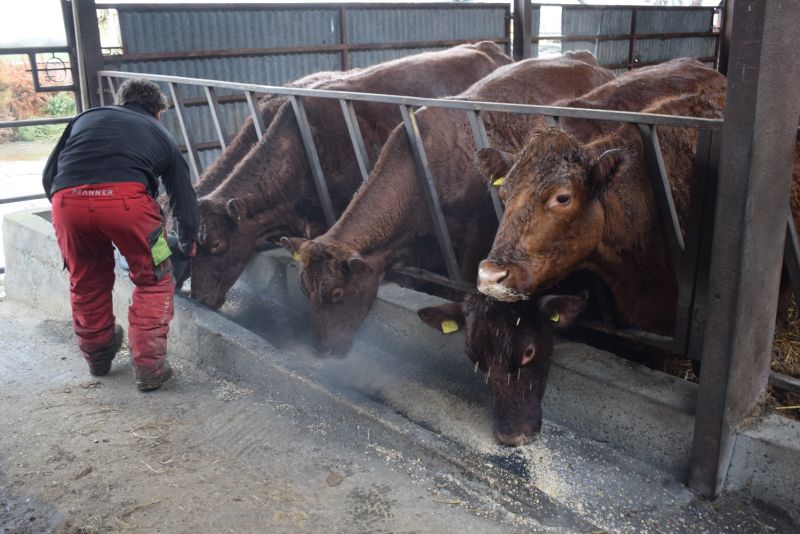
Farmers are being invited to test whether feeding cattle biochar can reduce nitrate leaching and improve soil health.
The field lab, by research group Innovative Farmers, wants to investigate the environmental benefits of feeding biochar, a type of charcoal.
Biochar is formed when biomass is heated to more than 250°C in a zero-oxygen environment.
It benefits soil health through its highly porous structure and holds a lot of moisture and nutrients, helping to improve crop yields.
Initial results from manure testing on a farm in Lincolnshire suggested that feeding cattle biochar decreased nitrate levels in the manure.
This may be because more nitrogen compounds in the feed were converted into protein by the biochar while inside the animal.
Researchers say it offers the potential to reduce nitrate leaching into water courses when slurry is used as fertiliser.
But more trials are needed to build on these findings. A meeting in Wales in October will share the results so far and extend the field lab.
Farmer Richard Copley, who led on the research, said: “Results from my farm have been encouraging, but we need more farm-based research into the impact of biochar feed on ammonia emissions, carbon sequestration and animal health.”
The trial is in partnership with researchers from the Centre for Agroecology, Water and Resilience (CAWR) at Coventry University.
They are also carrying out pot trials to see whether biochar-feed manure has any impact on grass growth and soil health.
It is also thought biochar could benefit cattle by absorbing toxins and reducing parasitic worms, as well as reducing ammonia emissions.
